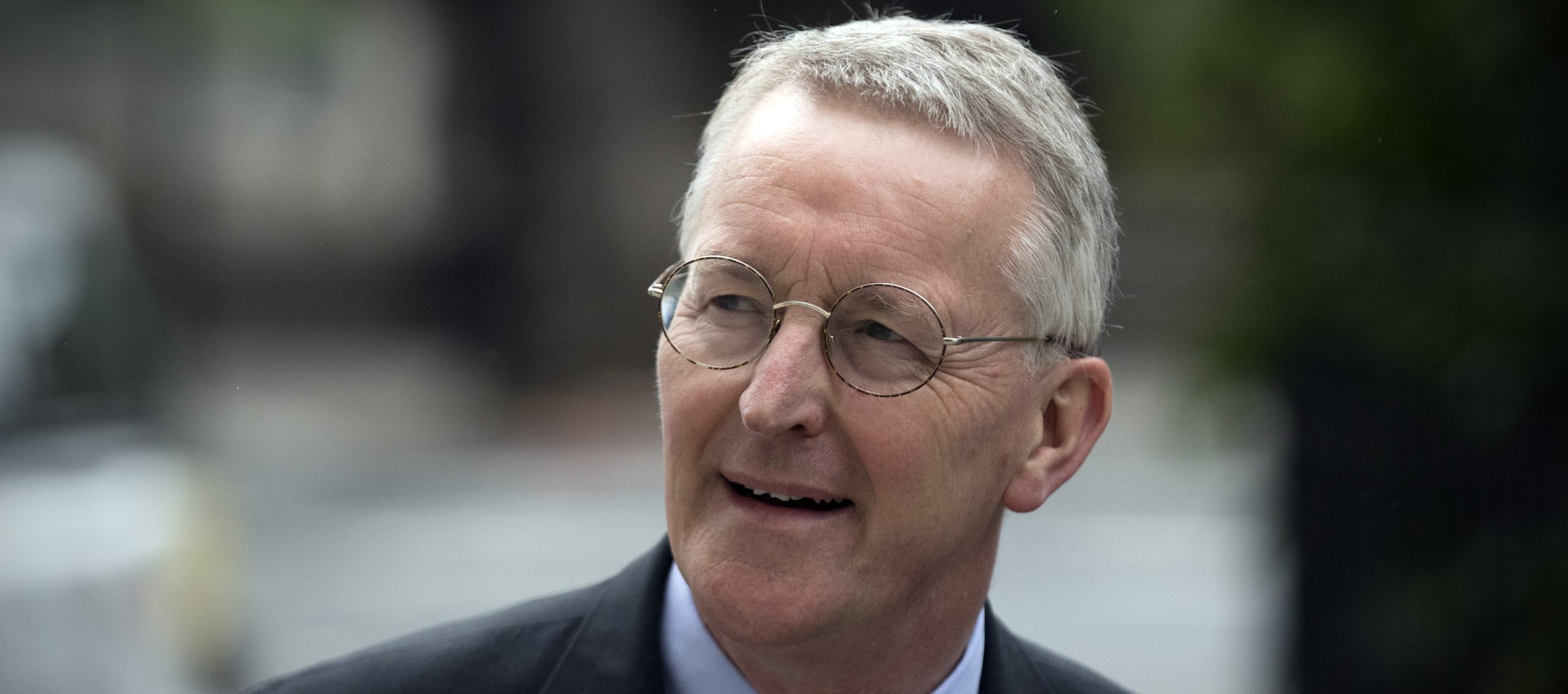As I interview Hilary Benn, MP for Leeds Central, it is obvious that he’s been here many times before. Having held the same office for twenty years, Benn is a seasoned politician. Perhaps this comes from his father, Tony Benn, the former Labour MP famous for his socialist views?
Yes, says Benn, politics is a family tradition. As a child, Benn assumed that all families talked current affairs over breakfast. Decades later, having sat in numerous Cabinets and Shadow Cabinets, from Blair’s to Corbyn’s, Benn maintains that a politician’s role is to listen to ordinary people with ordinary problems.
Following in this vein, I ask him about something which, though not very glamorous, affects many Leeds residents’ daily lives: transport. Benn has been a vocal supporter of HS2, the government’s notoriously over-budget, long overdue project. Aiming to offer high-speed rail connection between London, Birmingham, Manchester and Leeds, HS2 has cost the taxpayer £9 billion on the first phase alone, which remains unfinished.
Would the money not be better spent on something people actually need, like better local transport? After all, Leeds is the only major city in western Europe lacking a mass transit system. Benn retorts that the completion of HS2 is the necessary condition for the success of Northern Powerhouse Rail. Nevertheless, the London-Birmingham branch of HS2 will not be completed by 2030, while the second phase which includes Leeds, might not appear until 2040. Benn, however, states that such a transformative scheme takes time, and that the payoff for the North is worth the wait.
In the meantime, I ask, what can be done to combat the dangerous levels of air pollution in the city? Last year, campaigners found that one street in Leeds had levels of nitrogen dioxide higher than London. Benn speaks at length about the future of zero emission vehicles, and government strategy to promote electric cars.
Although all good ideas, I remain unconvinced. What about more investment in buses, which are currently the most used form of transport to work in the North? Benn believes that buses in Leeds should be brought under public control, but states that even this will not ease the congestion partly to blame for regular delays. I wonder, then, why he focusses so heavily on electric vehicles, when surely more buses for people to use would lead to fewer cars on the road.
Benn’s constituency, Leeds Central, covers an area ranging from the universities to the legalised red-light district in Holbeck. Benn’s approach to the future of the scheme is pragmatic. “You can’t arrest your way out of this problem,” he says. He is critical of the BBC documentary, ‘Sex, Drugs and Murder – Life in the Red Light Zone’, for encouraging people to come and gawp at the women featured. He hopes that the findings of the council’s independent review will prove more constructive in determining the future of the scheme.
For the city as a whole, Benn’s most pressing issue has remained the same throughout his tenure. “The city has had a lot of success,” he explains, “but not everyone shares in that prosperity, and that that remains for me the biggest single priority.”
Apart from his commitment to his constituency, Benn has played a major role in national politics; from a stint at Shadow Foreign Secretary to his current position as Chair of the Exiting the European Union Committee. Having been dismissed from the 2016 Shadow Cabinet for rebelling against the leadership, Benn has no qualms in blaming Corbyn for the loss of the recent General Election. “The easiest way to sum it up is that we didn’t win [voters] trust and confidence.”
He is, however, fairly dismissive of my suggestion that Labour’s shift in its Brexit stance, from campaigning to Leave to supporting a second referendum, was to blame for their downfall: “The thing about Brexit,” he says, “it’s a binary decision. You’re either for it or you’re against it. That was a factor, but it was not the only factor.”
In 2015 Benn backed the government’s plan for airstrikes against ISIS in Syria, publicly disagreeing with his boss Jeremy Corbyn. Benn emphasises that he voted for intervention against Daesh, not the Syrian people; yet, civilians are inevitably collateral damage.
I put to him the recent accusation by MP Richard Burgon, who is running for Deputy in the Labour leadership race, that Labour MPs who supported military intervention in Syria were “strutting about like frustrated Churchills.”
Benn ignores the slight, instead telling me that Burgon’s proposals to put military intervention to a membership vote is unreasonable. “To say that the safety and security of the country [Britain] is going to be put on hold while we consult our members,” he says, “is impractical.”
However, I wonder if this statement conflates attacking a fascist regime with preserving the image of Britain as a nation not to be messed with.
It also begs the question as to whether or not intervention in Syria would improve the security of our country; it appears that previous interventions in the Middle East have increased terrorist activity in Britain.
Given his politics, it is unsurprising that Benn is backing Keir Starmer in the Labour Leadership Race.
He believes that Starmer’s ability to command respect of the House will translate to the public. Whatever the result, Benn asserts that the new leader will face the unenviable task of scrutinising and challenging “the soap opera in No. 10 with Mr. Cummings.”
“In the end,” he says, “It’s nice to debate issues, but I didn’t join the debating society. I joined a political party whose very purpose is to win power, [in order] to get stuff done.”
Image Credit: New Statesman

